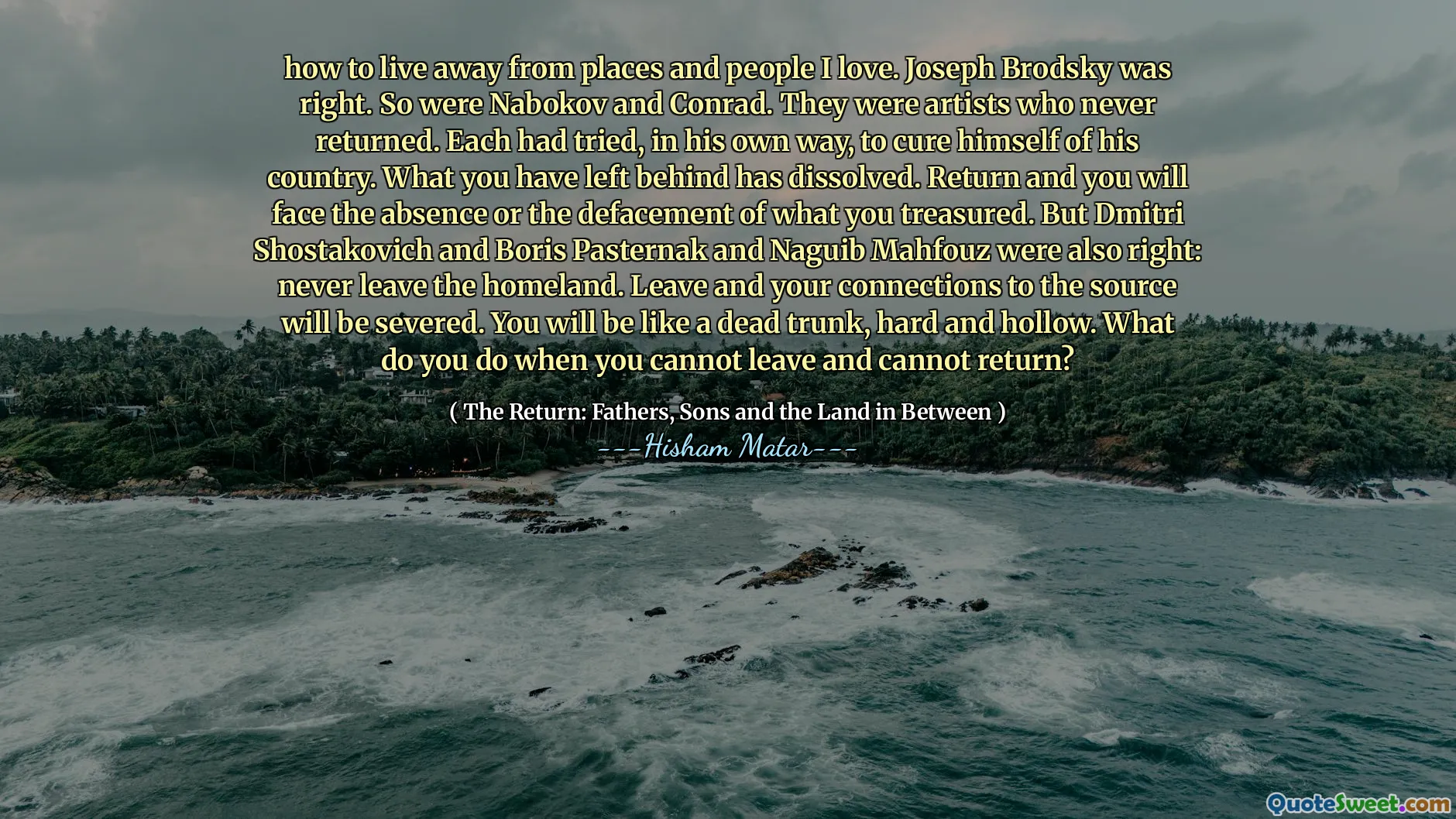
how to live away from places and people I love. Joseph Brodsky was right. So were Nabokov and Conrad. They were artists who never returned. Each had tried, in his own way, to cure himself of his country. What you have left behind has dissolved. Return and you will face the absence or the defacement of what you treasured. But Dmitri Shostakovich and Boris Pasternak and Naguib Mahfouz were also right: never leave the homeland. Leave and your connections to the source will be severed. You will be like a dead trunk, hard and hollow. What do you do when you cannot leave and cannot return?
The text reflects on the complex emotions tied to leaving one’s homeland and the impact it has on identity and belonging. It discusses the views of various literary figures like Joseph Brodsky, Nabokov, and Conrad, who preferred to remain away from their countries in search of solace. They faced the heartbreaking reality that returning meant confronting loss and change, as cherished memories and places often fade away. This illustrates the profound sense of disconnection that comes with emigration.
Conversely, voices like Dmitri Shostakovich and Boris Pasternak argue for the importance of staying connected to one’s roots. They caution that leaving can sever vital connections, rendering a person as lifeless as a hollow tree trunk. This creates a dilemma for individuals torn between the desire to leave due to various pressures and the inability to return to what they once knew and loved. The author Hisham Matar encapsulates this struggle, questioning what one should do when both leaving and returning are fraught with pain.






